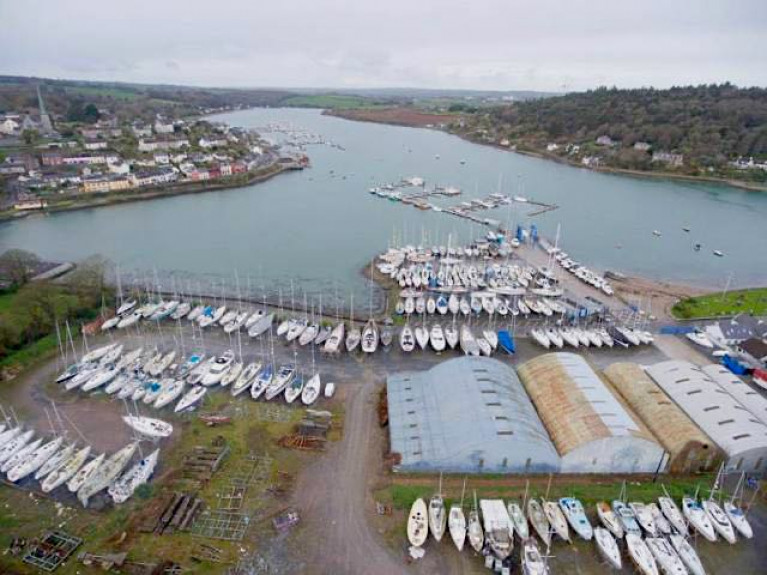Crosshaven Boatyard's new owner Pearse Flynn (see Afloat's report 28-09-20 here) has revealed further details of how the extensive facility in Cork Harbour will fit into his plans to provide comprehensive shoreside and on-water services for offshore wind farms off the Cork Coast, some as far as 70 miles at sea.
The yard, famed as the birthplace of Sir Francis Chichester's Gypsy Moth V in 1970, Tim Severin's ocean-voyaging "super-currach" St Brendan in 1977, and Denis Doyle's legendary offshore racer, the Frers 51 Moonduster, in 1981 - in addition to many other internationally-noted craft - is expected to be retaining many of its basic leisure boating services, while providing new work in the supply chain to the offshore wind industry.
Originally from Ballycotton in East Cork, Pearse Flynn (57) has had a remarkable international career, both as a senior executive in large corporations with a global reach, and as an entrepreneur. But according to an interview with Ian Guider in yesterday's Business Post, his heart has always remained in Ballycotton. And having one of his two homes there, he is keen to develop the vitality and economic clout of the small south coast ports, while retaining their strong sense of community.
Thus he feels that a highly-skilled locally-based workforce could be created by dynamic interaction with the growing wind energy industry. He reckons that if the ports such as Ballycotton and Crosshaven cannot provide the special combination of skills and service vessels, then his personal experience of working with the big international corporations involved leaves him in no doubt that they will readily import what they need from wherever it is easily available, depriving the small Irish ports of potentially significant sources of structural income and local employment.
 Busy man back home – international entrepreneur Pearse Flynn in Ballycotton. Photo courtesy: Irish Examiner
Busy man back home – international entrepreneur Pearse Flynn in Ballycotton. Photo courtesy: Irish Examiner
Thus he has invested €10 million in buying the boatyard – which comes with nine acres in a mix of workshops, covered storage and boat building facilities, in addition to extensive outdoor boat storage – and in ordering two special service vessels.
As to the actual wind farms, one line of approach which the team in his company Green Rebel Marine is researching is the possibility of turbines on floating platforms. But as of now, the village of Crosshaven is getting used to the idea that some truly cutting-edge sea-going technology may well be developed in a special place where traditional and modern boat-building have successfully inter-acted for many years.


























































